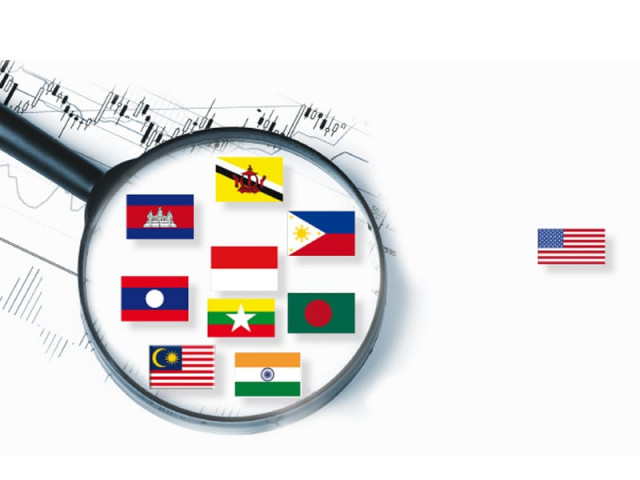MFN and beyond: Wisdom of neighbourly foreign policy
Close pacts with regional countries hold key to economic dominance.

MFN and beyond: Wisdom of neighbourly foreign policy
US Assistant Secretary of State, Robert Blake articulated his country’s position about the Pakistan-Iran petroleum deal, “We do not think it is the right time for doing this kind of transaction with Iran,” [ Dawn April 2]
The people and government of Pakistan, need to take a cool look at the progress made by some of the most successful countries during the last fifty years. It is high time we realised that we need to learn from what they did to achieve progress and not by yielding to what the West has been telling us to do with our country and people.
There are many major international alliances based on simple common sense and the basic principal that close relations and cooperation among neighbouring countries must be the foundation for formulating foreign and economic policies.
The European Union is a key example. It was formed by the devastated and divided countries of Europe after World War II as an integrated body of 27 nations, including the reunited Germany, with a single currency and free movement of goods and people across borders.
Then there is the North American Free Trade Agreement of 1992 which was formed to promote free trade, remove tariff and other restrictions among the adjoining countries of Canada, USA, and Mexico. Many Americans living in California commute daily to their factories established across the border in Mexico.
And right in our own backyard, the Association of Southeast Asian Nations (ASEAN), founded in 1967 by Indonesia, Malaysia, Philippines, Thailand and Singapore for regional peace and promotion of economic, social, cultural and scientific cooperation, now also includes; Cambodia, Brunei, Laos, Vietnam and Myanmar.
On the contrary, look at the squabbling Middle East and African countries (Iraq/Iran, Syria/Lebanon, for instance), and their consequent miserable condition.
As far as Pakistan is concerned close regional cooperation is a major issue, which almost never received an objective and sensible attention. Our short sighted and lopsided policies have been self-destructive at best. With the exception of China, we have worst possible relationships with all our neighbouring countries. This unwise attitude has been in practice since decades to our huge economic disadvantage.
Take India and Pakistan. Both are ridiculed by the world for diverting bulk of their precious resources from those desperately needed for poverty alleviation, to huge arms built-up. Neither country seems to have learnt anything from the collapse of USSR under its own military might.
Afghanistan has similarly paid a heavy price for the lack of peace within its borders and without. Similarly the Regional Cooperation for Development (RCD), initiated during Ayub Khan’s rule in 1964, was a great idea to bring closer; Pakistan, Iran and Turkey. It made a good start then fizzled out, though the vision still remains valid and powerful. It can also attract the land locked and oil rich Central Asian States. As recently as the 1980s, a large number of ordinary Pakistanis opted for the inexpensive road travel from Pakistan to Iran, Turkey and onwards to Europe. Now security issues and lack of trust between governments has made this a rarity.
This is not a nostalgic trip. It is an attempt to share a perspective on how peace in our region started eroding making lives of over a billion people a living hell.
In Pakistan, two factors stand out glaringly as being responsible for this disaster. One is the increasing narrow-mindedness of our rulers, and the other is the consequent meddling of foreign powers. Energy crisis is a root cause of our current economic and social calamities. Domestic industrialists are looking for safe havens abroad (UAE, Egypt, Bangladesh, Malaysia, and the West etc.) instead of investing at home. Not to mention the talent that is moving out with it.
Here is an opportunity, of not only effectively addressing our energy crises, but also of promoting trade with our neighbours. If we are unable to comprehend the objective realities ourselves - and do what is in our national interest - surely, no one else is going to do it for us. Certainly not those who tend to dictate to us with their own interests in sight, not ours.
The writer has a background in trading and exports in the private sector.
Published in The Express Tribune, January 30th, 2012



















COMMENTS
Comments are moderated and generally will be posted if they are on-topic and not abusive.
For more information, please see our Comments FAQ